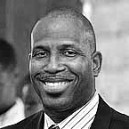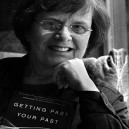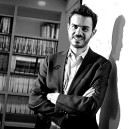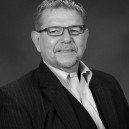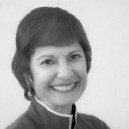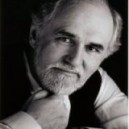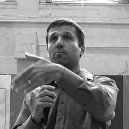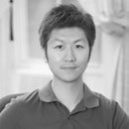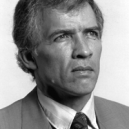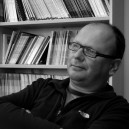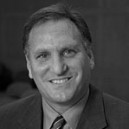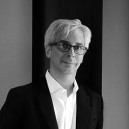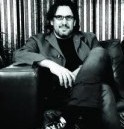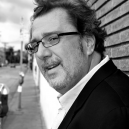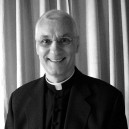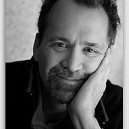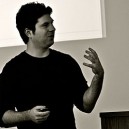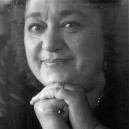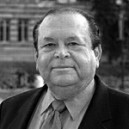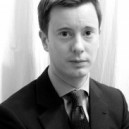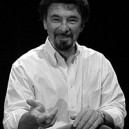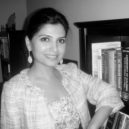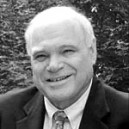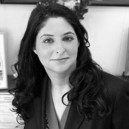Dr. Carolyn Mair
Fashion Psychologist
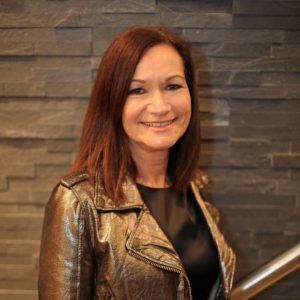 Dr. Carolyn Mair boasts a long list of professional and personal accolades. She has earned a PhD in Cognitive Neuroscience; she has earned a Master's degree in Research Methods in Psychology; and she is a professor of psychology at the University of the Arts, London. But perhaps her finest accomplishment is what has made her such a respected psychologist and also a trailblazer. Dr. Mair is responsible for the first ever Fashion Psychology degree programs.
Dr. Carolyn Mair boasts a long list of professional and personal accolades. She has earned a PhD in Cognitive Neuroscience; she has earned a Master's degree in Research Methods in Psychology; and she is a professor of psychology at the University of the Arts, London. But perhaps her finest accomplishment is what has made her such a respected psychologist and also a trailblazer. Dr. Mair is responsible for the first ever Fashion Psychology degree programs.
It may sound silly at first, but one look at the programs Dr. Mair has pioneered and you can see how she has seamlessly blended the science of psychology with the glitz and the glamour of fashion in not just an educational manner, but an impactful one as well. The programs -- a Master's in Applied Psychology in Fashion and a Master's degree in Psychology for Fashion Professionals -- are both found at the London College of Fashion where she teaches. She is the subject director and course leader for both degree tracks.
Don't expect Dr. Mair to brag about her impressive impact on both fashion and psychology however. When asked to describe herself she says simply, "I am a cognitive psychologist working in the context of fashion." Although she works "too many" hours, she tries to keep weekends and most evenings free for friends and family; practice her saxophone skills and go to the gym at least four times per week.
CIP was fortunate enough to be granted an audience with Dr. Mair, who shared her story, career advice, and much more.
Dr. Mair; what was your life like "before psychology?"
CM: I have always been interested in people, but never dreamed that I would become a psychologist. Although I got a place at Grammar School and took my O level exams a year early, I didn’t enjoy the experience, except for the art lessons, and left as soon as possible. I was fortunate in that I found a position with a graphic designer who worked with department stores on their marketing and visual merchandising. This enabled me to use my creative skills as a designer and maker. In my spare time I continued to take commissions for portraits and murals and made clothes for myself and others. In the meantime, I continued reading about psychology and fell in love with the subject. I worked in graphic design for 4 years until I emigrated to Australia and got married. I returned to the UK to have my children and was able to paint and make clothes around their schedules which was wonderful. As they got older, I took a TEFL course and started teaching English to foreign students and got a love for learning as well as teaching.
Why did you enter the field of psychology?
CM: I’ve always been fascinated by people and keen to understand what makes people tick. Even now, when I have time to spare, I prefer to read books on Psychology than anything else.
Please describe your educational journey from an emotional standpoint--was it exhilarating, rewarding, difficult?
CM: Unfortunately, work in TEFL is usually seasonal and based on short contracts. Although I managed to work for 10 years in TEFL, when work dried up one year as a result of political issues in the Middle East, I decided to make the most of the opportunity and apply for a place at University. I was given a place on the BSc Applied Psychology and Computing at Bournemouth University. At the end of the first year, I was awarded a prize for achieving the highest overall marks for a first year undergraduate across the University. This gave me a great deal of confidence in my abilities and I continued to get great grades after this. On graduating with the BSc, I studied MSc Research Methods in Psychology and later completed my PhD in Cognitive Neuroscience. Emotionally, my educational journal has been exhilarating and very rewarding.
What were your greatest challenges regarding college?
CM: Having completed the BSc, I knew I wanted to continue studying so I spent a long time in the library, manually searching for potential funding sources for a Masters. Although this was highly competitive, I successfully applied for funding to support my studies for a Masters in Research Methods. Had I not got this, I wouldn’t have been able to continue my education at that point. On being awarded the MSc, I applied for funded PhD studentships, but wasn’t successful so I returned to TEFL. Then, by chance, I was offered a part-time lectureship at Bournemouth University teaching Research Methods. As this wouldn’t provide enough income, I sought other work at the University and was offered a part-time research post in the Computing department. Within a few months I had a paper accepted in a scholarly journal and after a year, I was invited to undertake funded PhD in Computational Neuroscience. I jumped at this opportunity over the next few years immersed myself in the thesis.
The turning point for the thesis, and for me as an academic, was the brief time I spent at the Centre for Cognitive Neuroscience at SISSA, Trieste, Italy. I completed the thesis in the area of cognitive, rather than computational, neuroscience. Certainly, computational neuroscience was challenging, but challenges needn’t be negative. I learned so much from PhD, not just about neuroscience and psychology, but also about myself. In answering this question, I have been reflecting on the challenges and clearly there were many, but each can be an opportunity to grow, become aware of the limitations of one’s knowledge and respectful of others’ expertise.
Have you yet written any books/articles?
CM: I’ve been commissioned to write a book which will be part of Routledge’s Psychology of Everything series to be published in 2017. My book, unsurprisingly, will be called Psychology in Fashion. I have published more than 50 papers in journals and conference proceedings and am frequently invited to write for the media.
Can you share with us what "A Day in Your Life" is like?
CM: My day begins around 7 a.m. I’m lucky, I can walk to work in less than 45 minutes and try to do this as often as possible. Some days I go to the gym before work, but I’m usually working by 8:30 a.m. I like to work from home when I can as it’s quieter with far fewer distractions and interruptions. Consequently I get much more done when I work from home. My days are very different whether I’m working from home or the office.
If I’m at home, in addition to managing my research, teaching and administrative jobs, I will have Skype calls with colleagues, my PhD students and clients that I might be working on projects with. Most of time at the office is taken up with meetings, committees and problem solving. As a senior member of staff, I’m on several committees at UAL including the Research Degrees Sub-committee and the University Ethics Review Committee. Of course, we also have Program Group, and other staff meetings as well. I have approximately 3 or 4 enquiries each week from people wanting to meet me to discuss their projects or aspirations. I like to meet as many of these as possible and some have led to some very interesting collaborations.
As Course Leader for both Masters programs, I am responsible for managing the Psychology team, monitoring the quality of the courses and students’ well being. I also supervise 2 PhD students and am Unit Leader for Cognition and Creativity. This unit enables me to share my expertise in the cognitive and biological underpinnings of human behavior in general in creativity in particular. As in other program units, students apply this knowledge to their individual research project which is investigating a particular aspect of human behavior within the context of fashion. I try to schedule meetings on 3 days a week to fit around teaching commitments so that I can save some time for doing research although this can get taken up with responding the emails!
I am keen to engage the public in a better understanding of psychological science and make the most of opportunities to spread the word. As a result, I set up and lead the Well being Research Hub at LCF which holds five meetings from October to June. Each event is different. The first is usually an overview of psychological well being and a discussion around the implications of this in the context of fashion. We have just held the 2nd event which was on creativity and mental health. The 3rd event will be on diversity in fashion. These meetings are open to staff and students as well as the public and are very popular. I am also co-founder of a University wide Community of Practice called LENS. We run several events throughout the year on a range of topics aimed to bring together artists, designers and scientists at the University and beyond. I am particularly interested in the cognitive aspects of beauty and least year, I organized through LENS a round table to discuss this topic. This has led to a conference on aesthetics, psychology and fashion which will be held at LCF in the summer 2016. It has been funded by the British Society for Aesthetics and the British Psychological Society’s London and Home Counties branch. For the past three years I have run the Better Lives seminar series at LCF. The first focused on cognitive psychology in fashion; the 2nd on …isms in fashion; and the 3rd on positive psychology in fashion. These were highly regarded and recordings of the majority of them can be found online.
Responding to press and other enquiries takes up a lot of time, but I love this aspect of my work. I’ve been interviewed and written features for many national and international and other media including Sky News, Turkish National TV and Radio, The Times, The Sunday Times, Daily Mail, Psychologies, Huffpost, whowhatwear.com, The Observer Argentia, Grazia UK, Grazia Netherlands and Grazia Middle East as well as Vogue UK as part of their series on the Future of Fashion with Alexa Chung.
What characteristics do you think allow someone to thrive in this career field?
CM: As this is such a new area, psychologists working in the context of fashion in academia would need to be clear and critical thinkers, confident in the value of applying psychology to fashion and flexible in their approaches to solving problems. They would need resilience and patience when explaining the value of applying psychology in the context of fashion as this may challenge existing practices and myths that currently exist in the industry and is likely to be met with resistance. Psychologically literate individuals have the characteristics that enable them to thrive in this, and actually most other, career fields.
How hard was it to get where you are now? Would you say it was worth it?
CM: I wouldn’t say it’s been easy, but if you want something, you really have to go for it through tenacity and determination. It was definitely worth the journey…and I hope I haven’t reached the destination yet!
What one thing would you like to see changed in your field?
CM: I’d like to see changes in the fashion industry that result in greater diversity; better treatment of workers in sweatshops and on the catwalk; less environmental damage through smarter production, consumption and disposal of garments; and action to address the any negative influences of the industry on well being such that fashion can be used to enhance, rather than harm, the mental health of its workers and consumers. This is more than one!
What gets you excited about your job and why?
CM: I love the fact that every day is different. That people get excited when I explain what I do and that there are so many untouched areas within fashion that are waiting to be understood through the application of psychological science.
What do you hope to have accomplished by the end of your career?
CM: I hope that I will have raised awareness of and laid the foundations for changes to the issues in the fashion industries that are damaging well being to individuals and societies locally, nationally and globally.
What advice would you give someone who wanted to follow in your footsteps?
CM: Understand the value of psychology and how it can be applied to make a positive difference in any context. Be curious and determined and passionate about making a positive difference.
Thank you Dr. Mair for your time in sharing your life with us; and thank you as well for the work you have done and will do in the world to make it a better and healthier place to live.
"Psychology in fashion allows me to draw together my academic and creative experience and skills. I love being in the creative atmosphere of London College of Fashion even though it can be challenging sometimes to share understanding from a scientific perspective." - Dr. Carolyn Mair
Follow her on Twitter.








